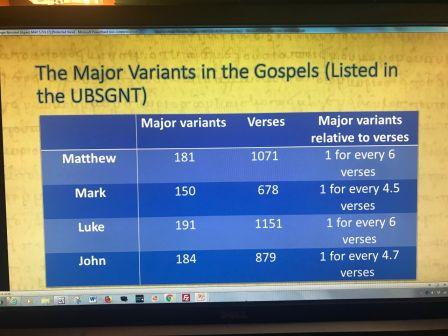 6:56 AM Jim Wallace had penned a fine piece called How Can We Trust the Gospels When the Genealogy of Jesus Is So Different? Many New Testament scholars question the historical reliability of the four Gospel accounts of the life of Christ. They insist that the records are filled with after-the-fact embellishments — a fact that requires scholars to search for the “historical Jesus” beneath the accretions of tradition, much like peeking an opinion to its core. For example, on one of the most important points of the Jesus story — the resurrection and the empty tomb — all the Gospels agree. Yet even when confronted with this evidence many people do not find the truth of the resurrection easy to accept. Nevertheless, belief in the resurrection of Christ is essential to our faith. Apostolic preaching confirmed it and even made it a condition of salvation: “If you confess with your mouth that Jesus is Lord and believe in your heart that God raised him from the dead, you will be saved” (Rom. 10:9).
6:56 AM Jim Wallace had penned a fine piece called How Can We Trust the Gospels When the Genealogy of Jesus Is So Different? Many New Testament scholars question the historical reliability of the four Gospel accounts of the life of Christ. They insist that the records are filled with after-the-fact embellishments — a fact that requires scholars to search for the “historical Jesus” beneath the accretions of tradition, much like peeking an opinion to its core. For example, on one of the most important points of the Jesus story — the resurrection and the empty tomb — all the Gospels agree. Yet even when confronted with this evidence many people do not find the truth of the resurrection easy to accept. Nevertheless, belief in the resurrection of Christ is essential to our faith. Apostolic preaching confirmed it and even made it a condition of salvation: “If you confess with your mouth that Jesus is Lord and believe in your heart that God raised him from the dead, you will be saved” (Rom. 10:9).
I wrote my book Why Four Gospels? not so much to argue for Matthean priority as to affirm the complete historicity and apostolicity of the Gospels. Early in my Christian experience I discovered that the Gospels were — and needed to be — central in my understanding not only of the Good News about Jesus Christ but of life itself. Only the cross of Jesus can supply meaning to life, and that is because the cross and the resurrection are an interwoven reality. Of one thing I am quite certain: Christianity is a historical faith. It is rooted and grounded in historical fact. No “leap of faith” is required to believe in Jesus. As I once heard Francis Schaeffer put it in Switzerland, you don’t have to put your brain in park or neutral to become a Christian. His cross is the center of all history. It is the crossroads of the universe. No one can avoid confrontation with it.
It is my prayer that skeptics may come to the Gospels with an open mind and heart, for there the living Christ is ready to meet Doubting Thomases in their pessimism and the travelers to Emmaus in their intellectualism.
(From Dave Black Online. Used by permission. 6/5/2014)
